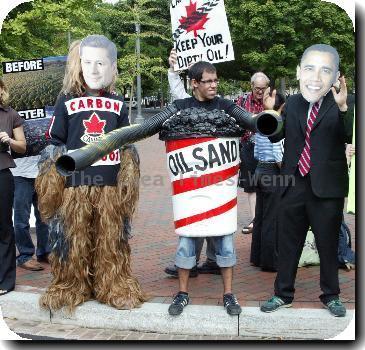Some notable races and measures on state ballots
By APTuesday, November 3, 2009
Some notable races and measures on state ballots
Some notable races and measures in Tuesday’s election:
GOVERNORS:
—Chris Christie, a Republican former U.S. attorney, unseated New Jersey Democratic Gov. Jon Corzine, a billionaire former Wall Street executive.
—In Virginia, Republican Bob McDonnell beat Democrat R. Creigh Deeds to replace the term-limited Democratic Gov. Tim Kaine.
U.S. HOUSE:
—California Lt. Gov. John Garamendi easily defeated his Republican opponent, attorney David Harmer, in a special election for a Northern California congressional seat.
— Democrat Bill Owens won a special election for a rural New York congressional seat that Republicans had held for decades. Some prominent Republicans, including former vice presidential candidate Sarah Palin, had backed Conservative Doug Hoffman. The hand-picked GOP candidate, state Assemblywoman Dede Scozzafava, withdrew from the race and threw her support to Owens.
MAYORS:
—In Atlanta, a six-way race to succeed term-limited Mayor Shirley Franklin, the city’s first female mayor, will lead to a December runoff. The two top vote getters Tuesday were City Councilwoman Mary Norwood, who was trying to become the city’s first white mayor in a generation, and state Sen. Kasim Reed, who is black.
—Boston Mayor Thomas Menino won an unprecedented fifth consecutive four-year term. He has been in office for 16 1/2 years, longer than any mayor in the city’s history.
—Ron J. Corbett, a trucking firm executive, was elected mayor of Cedar Rapids, Iowa, where the recovery from a devastating 2008 flood was among the major issues.
—Former NBA star Dave Bing won re-election as mayor of Detroit, where voters were trying to put the turmoil of the past year — the fall of ex-Mayor Kwame Kilpatrick and the federal conviction of a City Council member — behind them.
—In Houston, city controller Annise Parker and former city attorney Gene Locke are headed to a runoff to decide who will succeed three-term Mayor Bill White in America’s fourth-biggest city. Parker would be the city’s first openly gay mayor.
—The Democratic mayors of Minnesota’s Twin Cities won re-election. Minneapolis Mayor R.T. Rybak won a third four-year term, despite being open about a probable run for governor in 2010. St. Paul’s mayor, Chris Coleman, recently ruled out a run for governor.
—New York Mayor Michael Bloomberg won a third term in a surprisingly close race against Democratic city Comptroller William Thompson Jr., who tried to stoke voter resentment over the way Bloomberg changed the city’s term-limits law. Bloomberg was expected to spend more than $100 million, the most expensive self-financed campaign in American history.
—Pittsburgh’s 29-year-old mayor, Luke Ravenstahl, won his first full term in office. One of his opponents was Franco Dok Harris, whose father is the Hall of Fame running back.
—Two political newcomers, cell phone executive Joe Mallahan and environmental activist Mike McGinn, were vying to become mayor of Seattle. With more than a third of the ballots counted, McGinn held a 910-vote lead.
BALLOT MEASURES:
—The ski town of Breckenridge, Colo., voted overwhelmingly to legalize marijuana possession for adults. The measure is largely symbolic, because pot possession remains a state crime for people without medical clearance.
—Maine voters, given the chance to make the state the first to approve gay marriage at the ballot box, voted down a same-sex marriage law approved by legislators in May.
—Maine voters approved a referendum that stretches the state’s medical marijuana law by expanding the conditions under which people can be prescribed marijuana and by allowing for retail dispensaries from which the drug can be distributed to patients.
—Ohio approved casinos in Columbus, Cleveland, Cincinnati and Toledo, ending two decades’ worth of voter opposition to bring nonlottery gambling to Ohio.
—In Texas, voters passed a constitutional amendment aimed at preventing the government from taking private property purely for economic development.
—In Washington, voters were deciding whether to keep a Legislature-approved “everything but marriage” domestic partnerships law, which grants registered partners the same legal rights as married couples.
Tags: Annise parker, Barack Obama, Bill owens, Bing, Bloomberg, Bob mcdonnell, Corzine, Hoffman, Jon corzine, Local Elections, Maine, Minneapolis, Minnesota, Municipal Governments, New Jersey, New York, New York City, North America, Ohio, Pennsylvania, Pittsburgh, Saint Paul, State Elections, United States, Virginia

